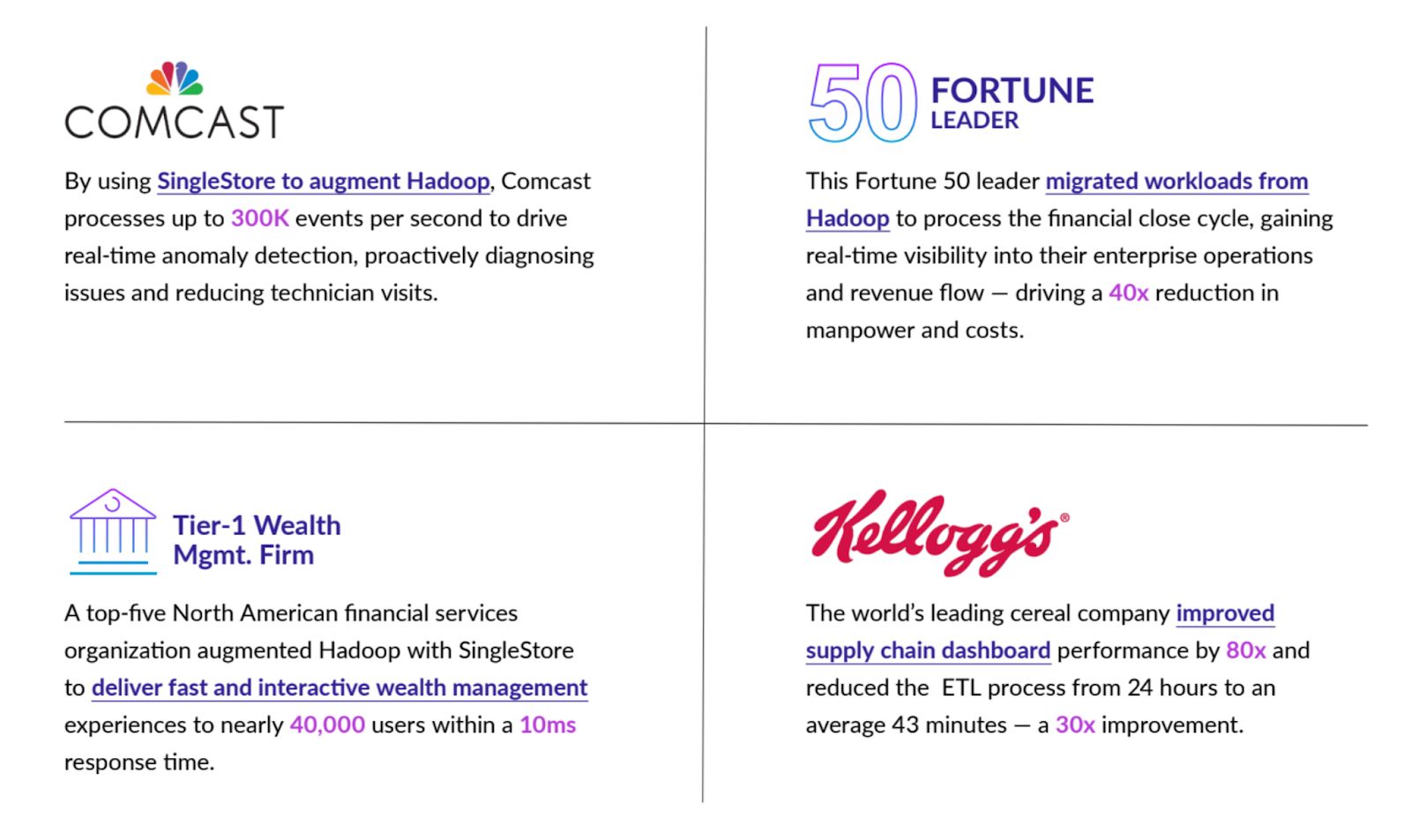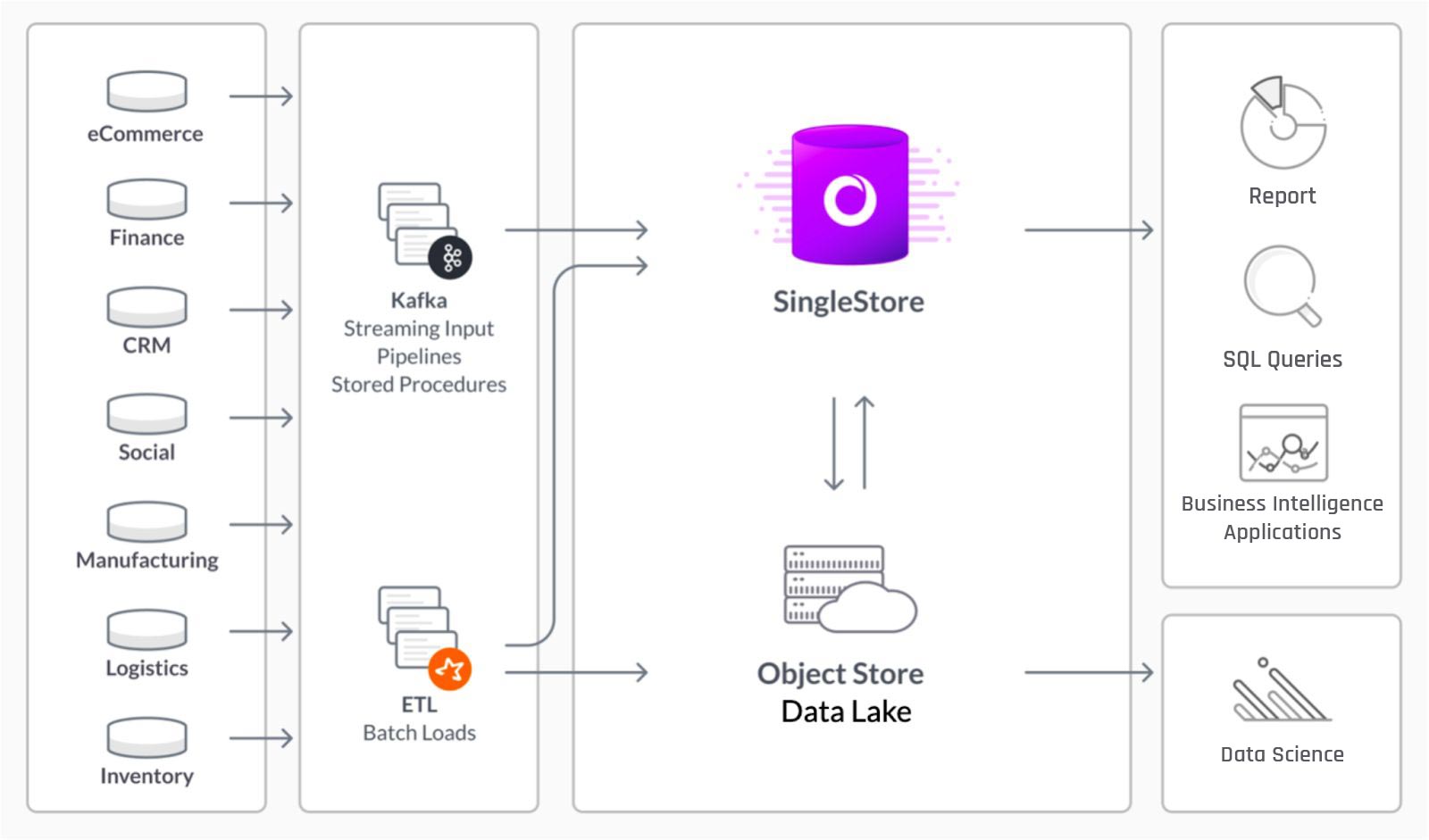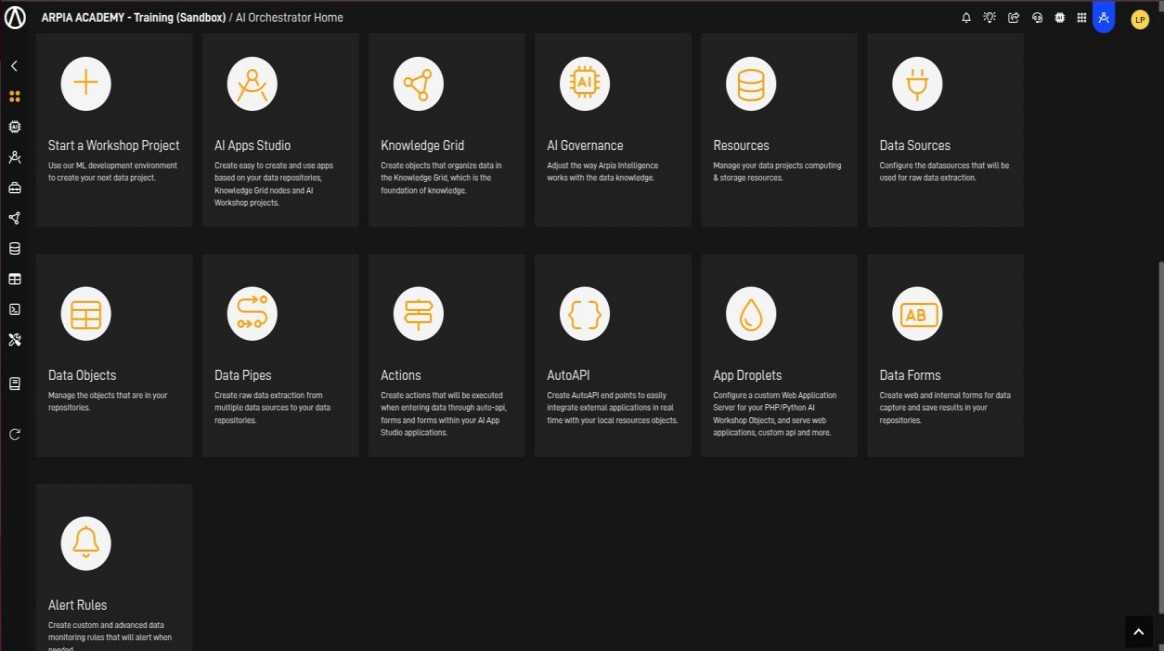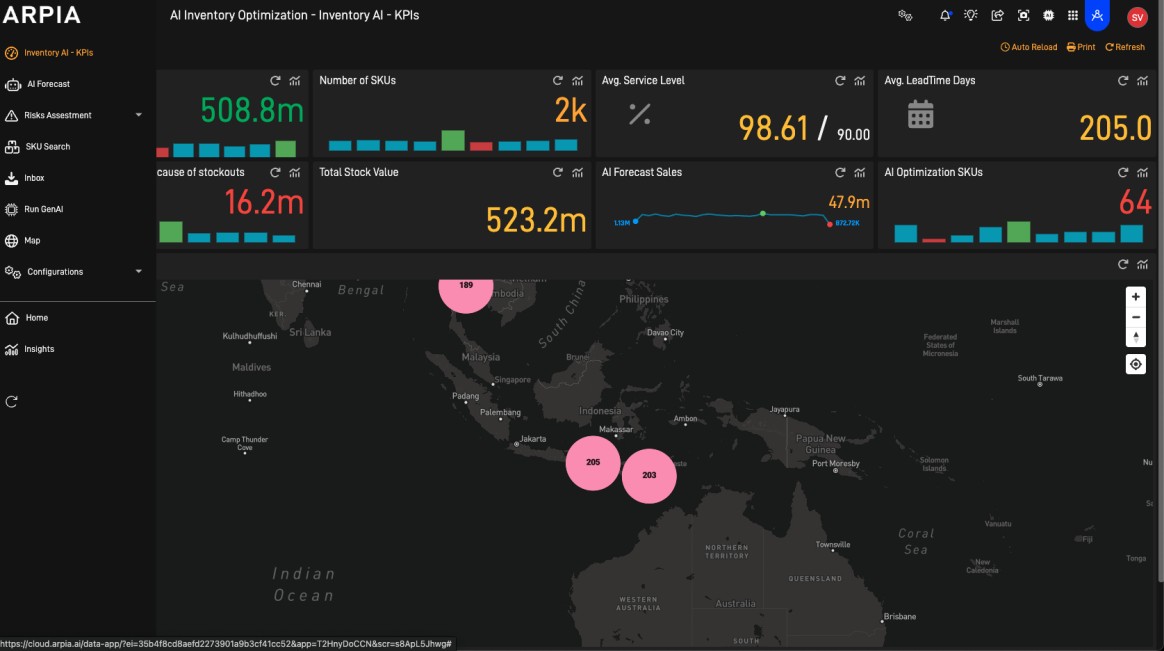Solutions
Data Lakes & Data Warehouse
Data management has evolved significantly with the emergence of data lakes and data warehouses. Data lakes, akin to vast reservoirs, store raw and unstructured data from diverse sources until its value is realized. This “store now, analyze later” approach promises a wealth of potential insights, yet often results in data bottlenecks and challenges related to data quality and accessibility.
On the other hand, data warehouses focus on structured and curated data, facilitating efficient querying and reporting. They serve as repositories for data that has been processed, transformed, and is ready for analysis. However, traditional data warehouses may struggle with real-time analytics due to the time-consuming extraction, transformation, and loading (ETL) processes.
Challenge
In the current landscape driven by data-centric decision-making, organizations across various domains are grappling with a common challenge – the imperative for swift and accurate insights. However, established approaches to data management have proven to be significant barriers in this pursuit. These challenges are not unique to a single sector; they span industries that seek on-the-fly analytics. The traditional concept of data lakes, once hailed as the pinnacle of data storage, now faces issues related to security vulnerabilities and scalability constraints. The aspiration for immediate insights is impeded by the intricate complexities of ETL (Extract, Transform, Load) processes. Moreover, the strategy of retaining data until its latent value surfaces leads to data bottlenecks, decelerating critical decision-making processes across various sectors. Adding to the complication, the absence of robust metadata practices exacerbates the issue by hindering data scientists’ endeavors to distill meaningful insights from the vast repositories of data they possess. Organizations, whether in managed healthcare or beyond, are at a crossroads – seeking a resolution that empowers agile, real-time analytics while alleviating obstacles stemming from data-related challenges.
Results
Embracing the dynamic partnership of ARPIA + SingleStore translates into a paradigm shift for data management across various sectors, including managed healthcare. The outcomes resonate far beyond a singular industry. With this innovative amalgamation, organizations experience a sweeping transformation. Swift, real-time insights become the bedrock of informed decision-making, propelling operational efficiency and fostering precision in various endeavors. The elimination of cumbersome ETL processes paves the way for enhanced agility and reduced complexities, creating a streamlined pathway for data analytics. Moreover, the strategic utilization of cloud-based object storage ensures optimized costs and unmatched performance. The real-world success exemplified by Impact.com underscores the tangible impact that this partnership can have across diverse industries. As organizations look to replicate this triumph, ARPIA + SingleStore stands as beacons of revolutionary data management, ushering in a new era of data-driven excellence and game-changing insights.

Solution Overview
The collaborative strength of ARPIA and SingleStore reaches well beyond the realm of managed healthcare, extending into various sectors that are in search of innovative data management solutions. This formidable partnership leverages state-of-the-art technology to address data challenges, leading to a paradigm shift in data analysis across a wide range of industries.
- Unified Real-Time Data Lakehouse
ARPIA + SingleStore’s cornerstone lies in their ability to forge a unified Real-Time Data Lakehouse. This novel architecture ingests data from an array of sources, including streaming data, and processes it simultaneously for both transactional and analytical workloads. By eradicating the separation of these workloads, managed healthcare organizations can achieve unprecedented efficiency in data processing and gain immediate insights that drive crucial decisions.
- Zero ETL Paradigm
ARPIA + SingleStore pioneered a transformative shift with the “Zero ETL” paradigm, revolutionizing data engineering. This visionary approach negates the necessity for conventional ETL processes and their associated complexities. By storing and analyzing data within the source system, organizations can bypass intricate data transformations and movements, resulting in a surge of real-time agility. The streamlined pipeline development, optimized costs, and enhanced performance that follow exemplify the advantages of this forward-looking paradigm.
- Object Storage Advantage
ARPIA + SingleStore pioneered a transformative shift with the “Zero ETL” paradigm, revolutionizing data engineering. This visionary approach negates the necessity for conventional ETL processes and their associated complexities. By storing and analyzing data within the source system, organizations can bypass intricate data transformations and movements, resulting in a surge of real-time agility. The streamlined pipeline development, optimized costs, and enhanced performance that follow exemplify the advantages of this forward-looking paradigm.
- Real-World Success: Impact.com’s Triumph
The transformative potential of ARPIA + SingleStore is showcased vividly through the success of Impact.com. This partnership empowered Impact.com’s data management by providing sub-second reporting, low-latency analytics, and superior concurrency. SingleStore served as the data warehouse, enabling a comprehensive solution encompassing fraud detection, compliance checks, tracking, attribution, and seamless global fund transfers.
In essence, the partnership between ARPIA + SingleStore transcends industry boundaries, offering transformative solutions that unlock the full potential of data management. With revolutionary insights and streamlined processes, organizations across sectors can chart a course toward excellence.

About ARPIA
ARPIA WorkShop, a module of ARPIA Orchestrator, is a complete modular development platform designed to handle the complete extraction, machine learning and visualization workflow process for any kind of data problem.
Once the orchestrator has finished integrating the datapoint and adjusting the modules for running the AutoML or custom modules, it is as easy as creating a DataApp using our no-code DataApp Studio to create a complete UX end user app to be deployed inside or outside the organization.

